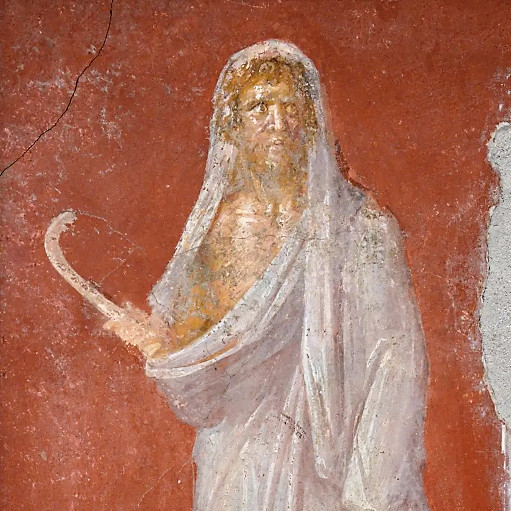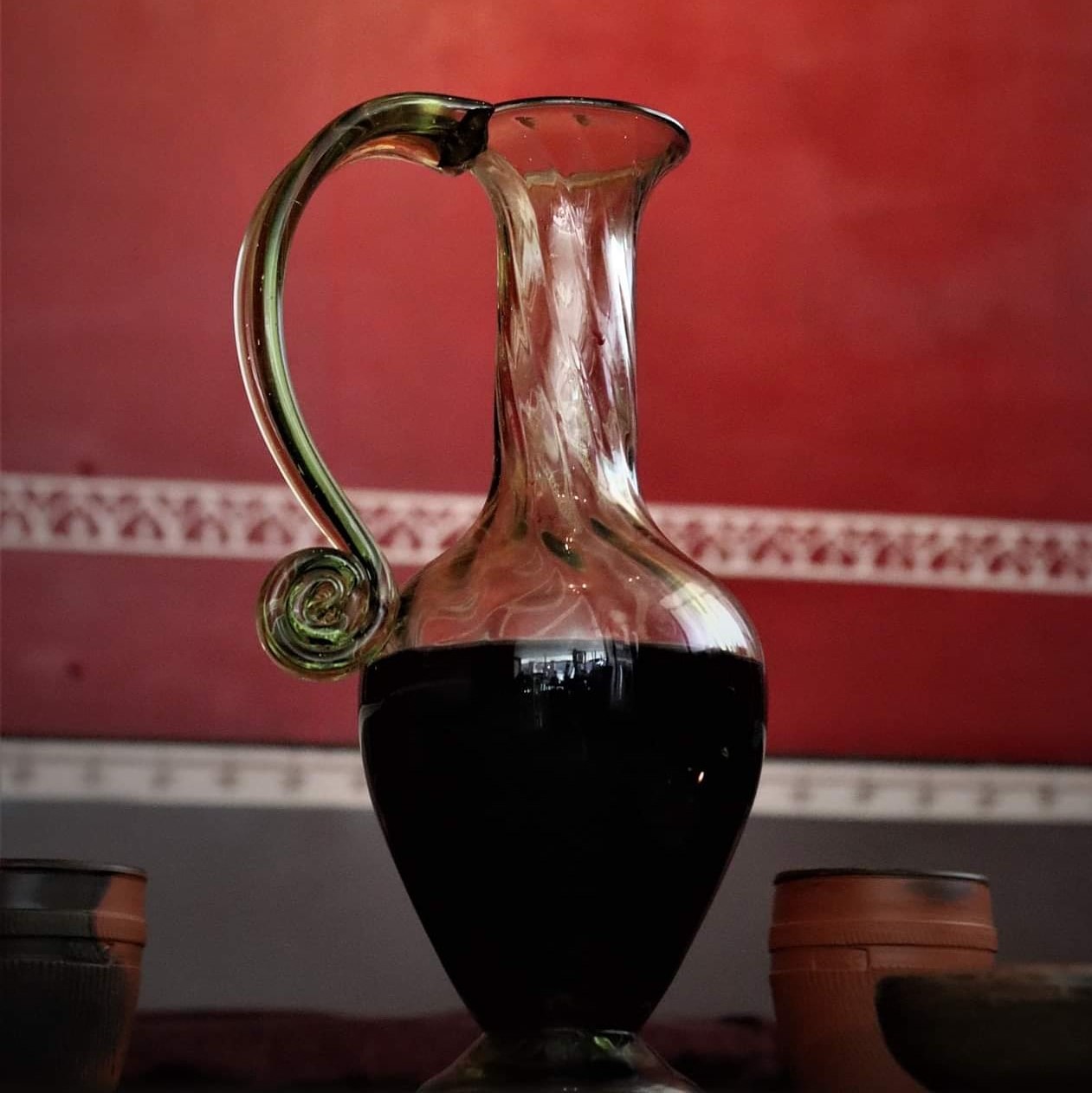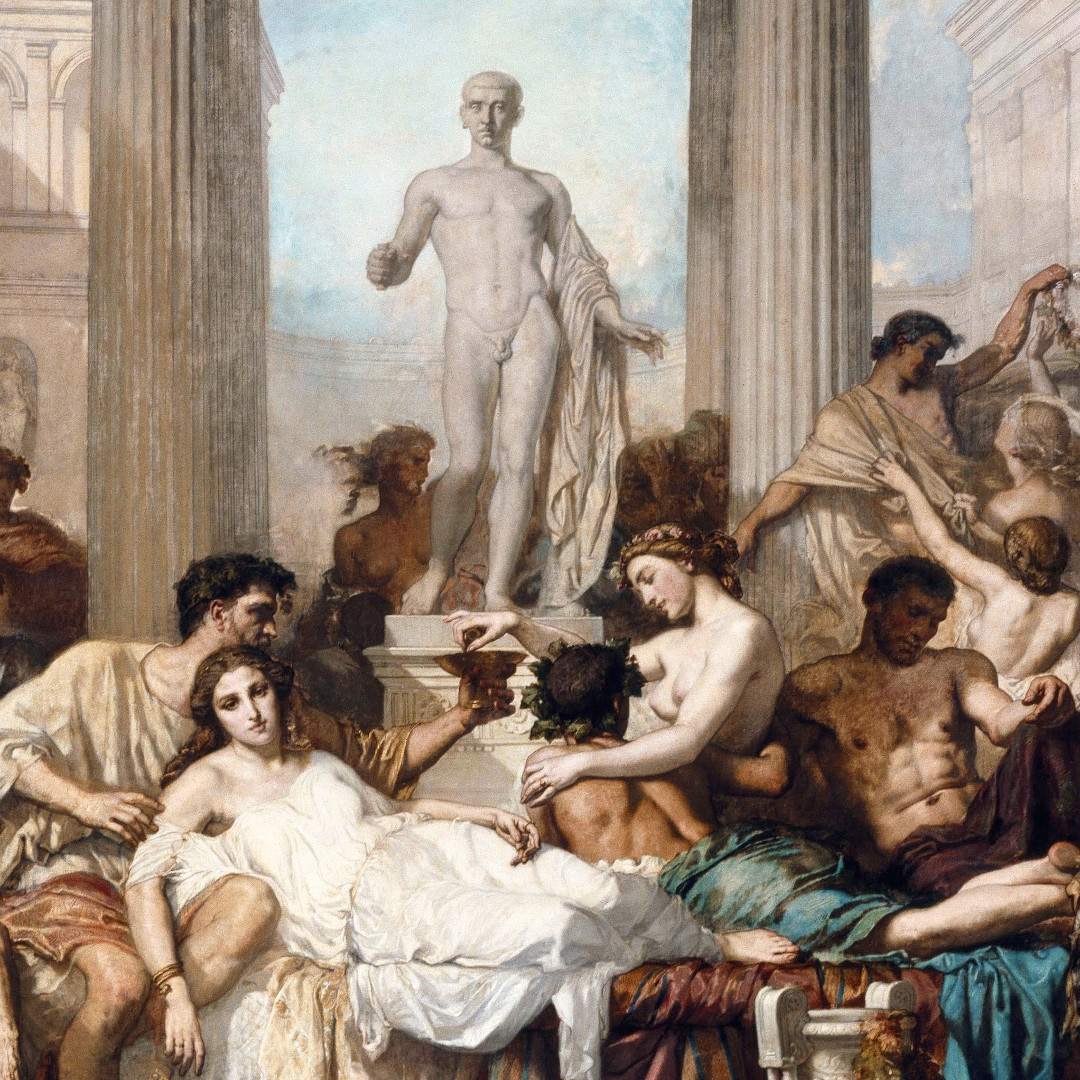Translated from French (please notify us of errors) At the end of the third century after our era, the Roman Empire was a mosaic of peoples with diverse traditions, increasingly prone to fragmentation, while imperial power itself was in crisis. In an attempt to restore unity, Emperor Aurelian (270–275) came up with an idea: he […]
Saturnalia, Roman society upside down
Translated from French with DeepL (please notify us of errors) Houses and streets became scenes of joyful revelry: the crowd goes out to form festive processions, the servants are served by their master, they were free to criticise authority without fear. Work and all public activity cease. In the houses, which are decorated with holly, […]
Greco-Roman ghost story
Translated from French with DeepL (please notify us of errors) I would really like to know if you think that ghosts exist, that they have a form of their own and some kind of supernatural power, or if they lack substance and reality and only take shape out of our fears.»[1]. This question plagued Pliny […]
From Alexander to the fall of Rome: the bitter fate of the citron
Translated from French with DeepL (please notify us of errors) When Alexander the Great’s soldiers invaded the territory stretching from the Caspian Sea to the Persian Gulf, around 331 BC, they discovered a shrub that bore oblong fruit with a rough rind, a bright yellow colour and a very pleasant fragrance. Such a beautiful find […]
Porridge eaters who have conquered the world
Translated from French with DeepL (please notify us of errors) A Roman legionary, on a day when the army was on the move, could consume more than 4000 calories, just by walking, carrying his gear and carrying out daily activities, such as building or maintaining a camp[1]. Of course, soldiers did not often have the […]
Mulsum, wine of celebration, glory and healing
Translated from French with DeepL (please notify us of errors) The idea of combining the harshness of wine with the sweetness of honey could only come from a god. In this case, Aristaeus, son of Apollo and the nymph Cyrene, according to Pliny the Elder[1], a Roman author of the 1st century. Aristaeus -Aristaios in […]
“Vomitorium”, what comes to mind?
Translated from French with DeepL (please notify us of errors) When you hear the word vomitorium, what comes to mind? A room adjacent to the dining room where the satiated Romans could evacuate the overflow to fill their bellies? False. It never existed. The term only appeared in the 5th centurye in the writings of […]
Nero, fire and ice
Article en français Translated from French with DeepL (please notify us of errors) The Romans too felt the heat. Indeed, climatologists have determined, through the study of pollen, glaciers, sediments, and other traces, that the period from around 250 years before the Common Era to the 4th century CE was exceptionally warm. This “Roman climate […]
Mallow, soft and tasty
Translated from French with DeepL (please notify us of errors) You have probably come across it without knowing or recognising it: the great mallow (malva sylvestris1) thrives in the countryside as well as in the city, on roadsides or embankments. It is noted for its beautiful flowers, ranging from pale pink to deep purple, with […]
The egg, a whole dish
Translated from French with DeepL (please notify us of errors) Ab ovo usque ad mala1. A good and copious Roman meal had to honour this expression: ‘from the egg to the apple’. Usually eaten as a starter during the gustatio, the egg could accompany an entire menu, right up to the dessert. In Apicius’ Culinary […]









